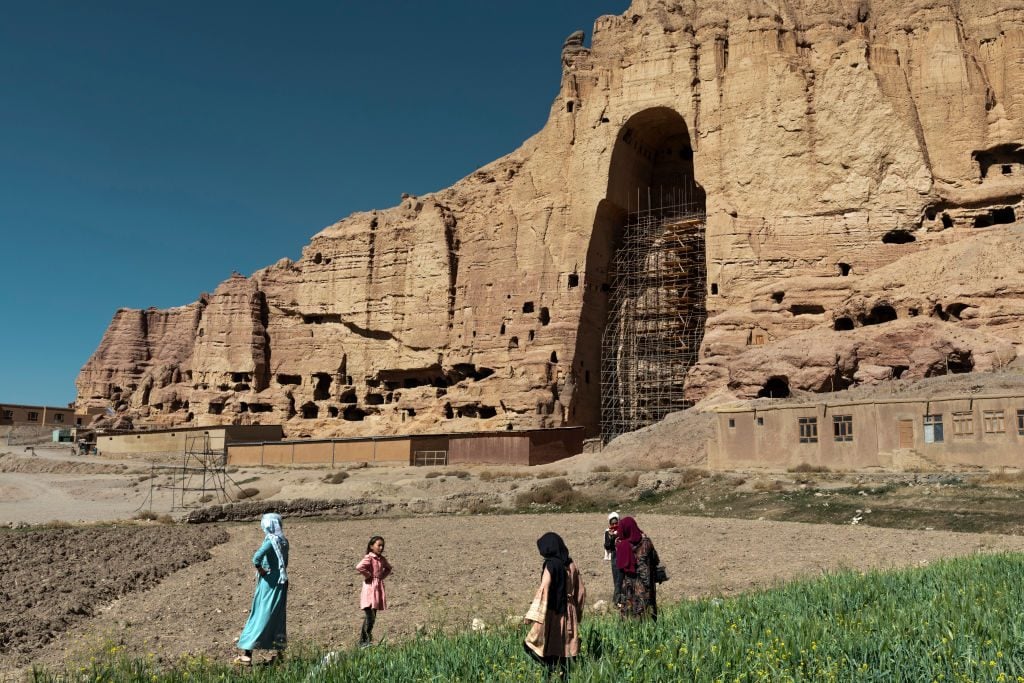The US has implemented a set of “emergency import restrictions” on art and antiquities from Afghanistan.
The rules, introduced by the State Department Bureau of Educational and Cultural Affairs and U.S. Customs and Border Protection, prohibit a broad range of Afghan artifacts from entering America through at least April 2026. Among the objects on the federal register’s designated list are archaeological material ranging from the Paleolithic era (roughly 50,000 B.C.) through to the beginning of the Durrani Dynasty (1747), as well as ethnological material from the 9th century through 1920.
The policy was conceived as a preemptive measure to prevent artifacts sourced illegally during last year’s Taliban takeover from flooding the international market. However, experts fear the rushed regulations may have dangerous counter effects.
Under the rules, for example, U.S. customs agents can seize any artifact on the list that doesn’t come with evidence that it was acquired lawfully prior to the implementation of the new restrictions. The agency would then likely defer to the Convention on Cultural Property Implementation Act, which requires the state to repatriate seized objects to their country of origin.
This could lead to objects being returned to the Taliban, which has itself been known to destroy Afghan cultural heritage.
The new restrictions raise “several ethical questions,” said Peter Tompa, a lawyer and the executive director of Global Heritage Alliance.
“First, should refugees be dispossessed of artifacts like musical instruments so they can be returned to the likes of the Taliban? Second, should U.S. Customs be given a carte blanche to seize items imported from legitimate markets in Europe so that they can be handed over to the Taliban at such time diplomatic relations are restored when the Taliban are more known for destroying cultural heritage than protecting it?”
Last fall, Tompa testified before the U.S. government’s Cultural Property Advisory Committee (CPAC) as it weighed a memorandum of understanding proposed by the pre-Taliban Afghan government. Along with prohibiting the import of Afghan artifacts in the U.S., the memorandum would have required Afghanistan to protect its own cultural property. But because the government that proposed the it was no longer in power, Tompa and others warned against agreeing to the document’s precepts.
Kate Fitz Gibbon, a cultural property lawyer and former CPAC member who also testified before the committee, agreed.
“We must admit that there is no such thing as a ‘former government of Afghanistan,’ that the request does not meet the foundational premises of the Cultural Property Implementation Act, and that the Taliban, with whom some relationship must be established to implement emergency restrictions or return objects, have no reason to abide by the State Department’s expectations and no track record of keeping promises made to anyone, ever,” Fitz Gibbon wrote in her testimony.
On the other side of the debate were Afghan cultural officials and archaeologists who approved of the memorandum’s protections.
“There is no precedent to suggest that the U.S. would return artifacts to the Taliban,” wrote the Antiquities Trafficking and Heritage Anthropology Research Project on Twitter this week. “The same scare tactics from art market lobbyists were used to oppose U.S. import restrictions on Syrian artifacts, saying they would be repatriated to the Assad regime. To date, none have been.” (Representatives from the group did not immediately respond to a request for comment.)
Last October, 12 international trade groups, including the Art And Antique Dealers League of America and Antiquities Dealers’ Association, issued a joint statement pledging not to bring illicit cultural property from Afghanistan to market. The groups promised to “alert [their] members and others to the heightened risks involved” and “continue to support law enforcement in publicizing news of stolen and trafficked items to prevent them from entering the market.”









